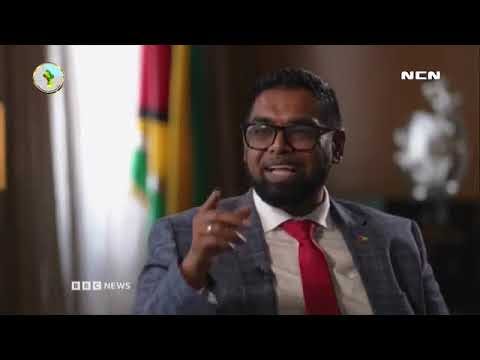One of my favourite expressions in Spanish is “ir por lana y salir trasquilado.” I’ve seen it translated as “getting more than you bargained for,” and that may be right in some respects. But that translation completely loses the cheeky flavour of the expression, to say nothing of the brilliant wordplay. Translated literally, it means “to go for wool and to return sheared.”
Sure, that has a bit of the “more than you bargained for” ring to it, but a bargain is a two-way pact that involves the consent of the participating parties. Shearing a sheep is a one-way street. One typically considers the shearer to be a superior being, and the sheep is the property and plaything of the sheep-shearing master. The sheep is not autonomous and does not consent to its shearing.
Sheep are easily herded so when a sheepherder goes for wool but comes back sheared, something quite extraordinary has taken place. The imagery goes far beyond the notion of a bargain. That is the rich flavour that the English translation misses.
Keeping that imagery in mind, watch the interview between Irfaan Ali, the President of Guyana and BBC reporter Stephen Sackur. Surely, Sackur believes himself to be holding the shears going after the Guyanese president. But the outcome is quite different. At the end, Sackur comes out sheared.
You will see how the supposedly enlightened European journalist tries hard to rattle the Guyanese head of state, a third-world, dark-skinned man with an Arabic name but with origins in the Indian subcontinent. [Coincidentally, Irfan means wisdom or knowledge].
I don’t fault tough interviewers. I grew up watching Mike Wallace and Company on 60 Minutes asking tough questions. There aren’t many good journos like that anymore. Reporters have a job to do, but the finesse in the craft has been lost.
Sackur wishes to come off as hard-hitting. The show is called HARDtalk, just like that, with the “talk” part in lowercase. But at several turns, he is just rude, sanctimonious, condescending and intellectually shallow like only woke people can be. He disingenuously puts words in his interviewer's mouth and misrepresents what the president is saying more than once.
Ali keeps his cool and calls him on it. For example, Sackur takes the side of Venezuela in the territorial claim of President Nicolas Maduro against Guyana but Ali repels him so well that Sackur has to scurry away looking for a tangent to flee through, claiming that time does not allow for the robust reply he is receiving.
Sackur seems to gloat when positing that if Guyana loses Essequibo, the territory Nicolás Maduro claims as Venezuela's, Guyana won’t develop the corresponding oil and gas reserves offshore —as if somehow socialist Venezuela would not develop them if they grabbed the territory. The hydrocarbon reserves are the reason Maduro badly wants the land. Sackur almost seems to imply that the state-owned misery mill Maduro runs next door would be a better extractor of the resource. Eurosocialist-endorsed carbon emissions must somehow be cleaner emissions!
But Sackur goes even further. He is an eco-colonialist. His ideology of environmental doom must be imposed on those poor third-world creatures with lower environmental consciousness. Ali went to the University of the West Indies. Sackur studied at Emma (Emmanuel College, Cambridge) and Harvard. Those without Sackur's heightened awareness are lesser beings. The eco-colonial attitude is crudely condescending. It is intolerant and insensitive in its imperialist environmental zealotry. Thoughtful, pro-resources Indigenous Canadians would recognize it on the spot.
If you don’t want to watch the whole interview, start at 14:58 here (the entire interview is 25 minutes and is worth it). At that point, Sackur pretends again to lecture the Guyanese president about “climate change,” having previously cited Green Peace as the commanding authority for the radically ridiculous notion that hydrocarbons must be kept “in the ground.” Ali counters him in ways that no leader of an oil-producing country I have seen has ever done.
What follows is poetry in motion. When Sackur tries to lecture Ali on carbon emissions tonnage and “climate change,” President Ali steps on the brakes: “Let me stop you right there…. Do you know that Guyana has a forest that is the size of England and Scotland combined? Our forests store 19.5 gigatonnes of carbon, [it is] a forest that we have kept alive.” Sackur tries to return the favour and cuts Ali off, but Ali perseveres, telling him that Sackur has no right to lecture him on climate: “I’m going to lecture YOU on climate change,” Ali said. “We have kept this forest alive that stores 19.5 gigatonnes of carbon that you enjoy, …that you don’t pay us for, that you don’t value, … Guess what? We have the lowest deforestation rate in the world. And guess what? Even with our greatest exploration of the oil and gas resource we have now, …Guyana will still be at Net Zero.” Sackur tries to cut Ali off again but Ali continues to jab his finger in the air at the ostensibly morally superior Englishman, waiving him off and saying that he wasn’t quite finished yet.
The world has not witnessed an epic take-down of a BBC ideologue since Jordan Peterson destroyed Cathy Newman on camera some six years ago.
Ali went on: “This is the hypocrisy that exists in the world. …The world in the last 50 years has lost 65 per cent of all its biodiversity. We have kept our biodiversity. Are you valuing it? Are you ready to pay for it? …Or are you in the pockets of those [British Petroleum?] who damage the environment? All the while, Ali consistently jabbed his forefinger forward and pointed it toward Sackur.
A little bit later, unapologetically, Ali strongly unholsters the argument of his country's right to self-determination: “We have this natural resource and we are going to aggressively pursue this natural resource because we have to develop this country … we have to create the opportunities for our people because no one is bringing that for us.” Boom!
For all his supposed conviction about climate doom, Sackur still flew to Guyana to interview Ali, likely with an entourage of producers and camera people, producing more “emissions” than the average Guyanese might put out in a year. He has no right to suggest that Guyana should keep its oil in the ground and keep half its population in poverty because the Brits and other Europeans wiped out their forests long ago, as Ali also pointed out.
This was a rare treat. It was delightful to see Sackur's arrogance sheared largely with his own clippers.





